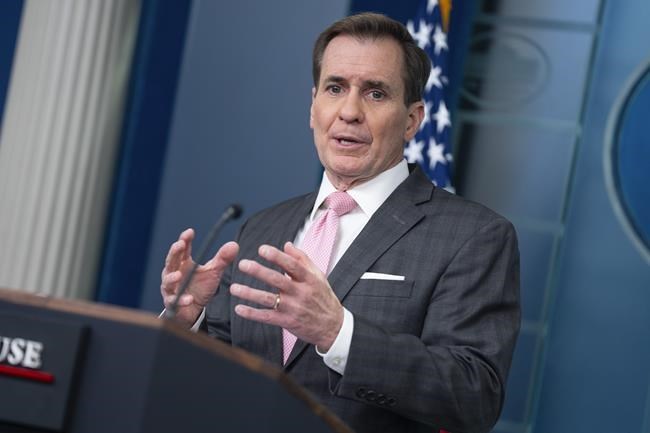WASHINGTON (AP) — The White House says it is preparing additional “major sanctions” on Russia in response to opposition leader Alexei Navalny's death in an Arctic penal colony.
National Security Adviser Jake Sullivan said the sanctions, on the eve of the two-year anniversary of Russia’s invasion of Ukraine, “will be a substantial package covering a range of different elements of the Russian defense industrial base, and sources of revenue for the Russian economy that power Russia’s war machine, that power Russia’s aggression, and that power Russia's repression.”
National Security Council spokesman John Kirby said Tuesday that the U.S. had not determined how Navalny had died, but insisted that the ultimate responsibility lay with Putin.
“Regardless of the scientific answer, Putin’s responsible for it,” he told reporters.
The Treasury Department declined to comment on the details of the upcoming sanctions Brian Nelson, the department's Under Secretary for Terrorism and Financial Intelligence, is in Europe this week to continue working on Russia sanctions ahead of the two year anniversary.
“The global coalition imposing unprecedented sanctions on Russia’s war machine has thrown sand in the gears of the Kremlin’s efforts to equip and supply its military. President Biden recently expanded Treasury’s authorities to target those funding Russia’s war production efforts – even if they’re located in third countries – and Treasury is aggressively pursuing those who attempt to evade our sanctions," the Treasury department said last week. "Multilateral sanctions and export controls have forced hard tradeoffs for Putin and damaged his ability to project power now and in the future.”
Policy experts have advanced an array of proposals meant to starve Russia of the money it needs to continue its invasion — from seizing the nation’s Central Bank funds housed largely in Europe to lowering the Group of Seven price cap in Russian oil.
A February working paper from the International Working Group on Russian Sanctions at Stanford University calls for heavier sanctions in Russia’s energy market – from lowering the current $60 price cap on Russian-produced oil to $30, as well as completing the EU and G7 ban on Russian hydrocarbons.
Zeke Miller And Fatima Hussein, The Associated Press



